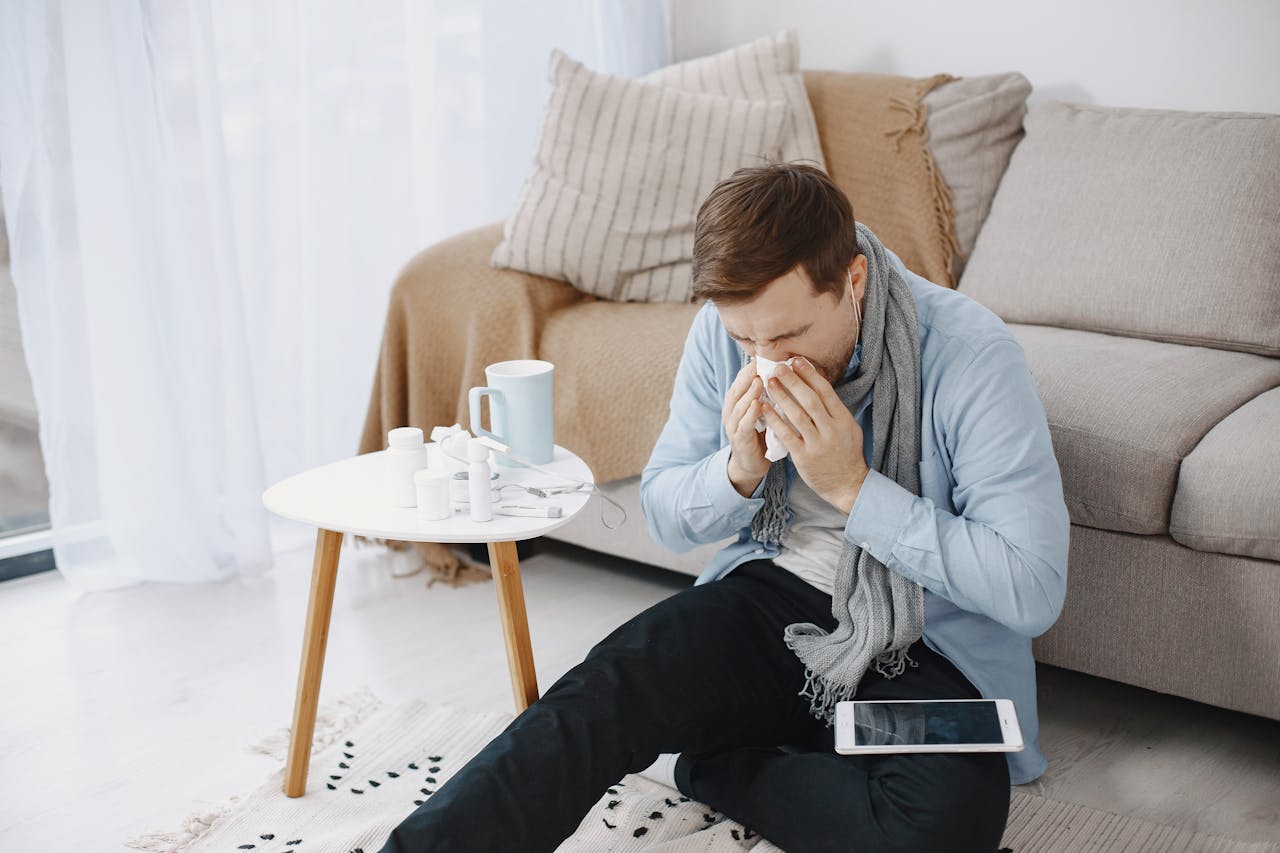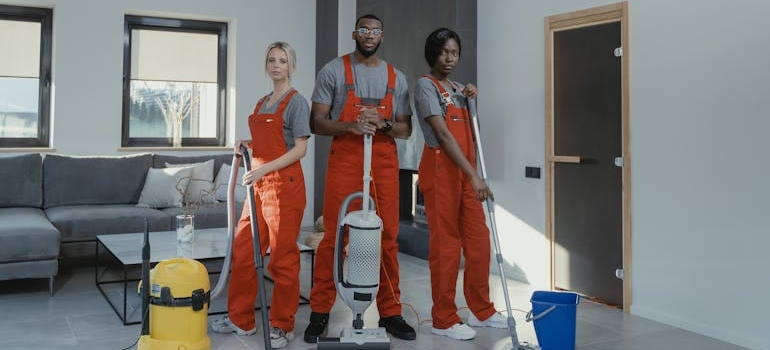
Top Allergy Triggers in Georgia and How to Avoid Them
Get an Instant Online Quote
"*" indicates required fields
If you’ve spent any time in Georgia, chances are you’ve had at least one day ruined by allergies. One minute you’re enjoying the sunshine, the next you’re sneezing like crazy, your eyes are itchy, and you can’t breathe through your nose. It’s not just you—allergy triggers in Georgia are on another level. The state’s warm, humid climate might be perfect for lush trees, vibrant flowers, and green lawns, but it also creates a breeding ground for allergens that stick around for much of the year. Whether you’ve lived here all your life or just moved in, understanding what sets off your allergies (and what you can do about it after moving with Georgia movers) makes a big difference.
That Yellow Dust? Yeah, It’s Pollen—and It’s Everywhere
You know it’s spring in Georgia when everything outside is coated in yellow. That fine powder on your car and patio? It’s tree pollen—probably from pine, oak, or birch trees—and it’s one of the most common allergy triggers in Georgia. But spring isn’t the only time you’ll be dealing with this stuff. Grass pollen shows up in the summer, and by fall, ragweed takes over. It can honestly feel like there’s no break. The symptoms can range from a slightly runny nose to full-blown sinus pressure, coughing, and constant congestion. So, how do you handle it? Well, you can’t stop the trees from blooming, but you can make a few changes:
- Check the pollen forecast before planning your day. If it’s high, try to limit outdoor time.
- Keep your windows shut, especially in the morning when pollen levels peak.
- After being outside, change clothes and rinse off (yes, even your hair holds onto pollen).
- Use an air purifier or HEPA filters in your home to keep indoor air clean.
Those small steps make a huge difference if you’re trying to avoid allergies in Georgia after relocating with apartment movers Atlanta or any other GA city offers.

Mold: One of the Most Common Allergy Triggers I Georgia No One Talks About
Most people think about pollen when allergy season hits, but mold is another big trigger here, and it’s not as easy to see. Thanks to the humidity, mold spores are a year-round issue, both indoors and out. They are in dark, damp places: under sinks, in basements, even in the soil of your garden or in piles of wet leaves. If you notice your allergies getting worse after it rains or when you’re spending more time inside, mold could be the problem. You might not even realize it at first because the symptoms are so similar to other allergies—runny nose, sneezing, scratchy throat, coughing. Here’s what helps:
- Use a dehumidifier if your home feels damp or muggy.
- Clean bathrooms and kitchens regularly, especially around sinks and tubs.
- Fix leaks as soon as you notice them.
- When gardening or raking leaves, consider wearing a mask to avoid breathing in spores.
Mold is sneaky, but it doesn’t have to run your life. A little maintenance goes a long way.
Pets and Dust Mites: The Indoor Trouble-Makers
If you’re still suffering even with the windows closed and the pollen counted, the problem might be inside your house. Pet dander and dust mites are among the most frustrating allergy triggers in Georgia because they never really go away. Even if you don’t have a pet, dust mites can make themselves at home in your mattress, pillows, and carpet. If you do have a furry friend, remember: it’s not the hair—it’s the dander (tiny flakes of skin) and saliva that trigger allergic reactions. To keep these allergens under control:
- Wash your bedding weekly in hot water.
- Use allergy-proof covers on your mattress and pillows.
- Vacuum rugs and furniture, often with a vacuum that has a HEPA filter.
- Try to keep pets off the furniture and definitely out of your bedroom (even if they give you those puppy-dog eyes).
Again, it’s about making your home more comfortable, not perfect. But even a few of these changes can help you breathe easier—literally. So, spring clean your home to prevent allergy triggers in Georgia.

One List You’ll Actually Want to Save
If allergies are your unwanted roommate, here’s a short list of things that can help kick them out:
- Stay informed with local pollen and air quality reports
- Close windows on high-pollen days and use air conditioning
- Reduce indoor humidity to prevent mold growth
- Keep pets clean and limit where they roam
- Clean your home regularly to cut down on dust and dander
- Talk to an allergist about medication or treatment options
These aren’t magic fixes, but they can turn allergy season in GA into something you can actually handle.
Can You Ever Really Escape Allergy Season in Georgia?
Here’s the tough part: Georgia doesn’t have just one allergy season—it has several. Spring kicks off with tree pollen, summer brings in grasses, and fall wraps it up with ragweed. Winter might offer a break from outdoor allergens, but indoor triggers can still keep your symptoms going.
The good news? Once you know your triggers, it’s easier to deal with them. Some people benefit from allergy shots (immunotherapy), while others get by with over-the-counter meds and lifestyle tweaks. The key is paying attention to what makes your symptoms worse, and making changes before allergy season ramps up. And if you cannot escape your allergies, you can at least soften them by visiting the best Georgia weekend getaways and breathe a bit easier.

Don’t Let Allergies Ruin the Best Parts of Living in Georgia
Let’s face it: Georgia is beautiful. From springtime blooms in Atlanta to crisp fall hikes in North Georgia, there’s so much to love. Allergies shouldn’t stop you from enjoying it all. Understanding the most common allergy triggers in Georgia—and having a plan to manage them—can make a world of difference. Yes, you’ll still have tough days, but you don’t have to suffer nonstop. There’s a lot you can do to stay ahead of the sniffles and get back to enjoying the things you love. So if you’re trying to avoid allergies in Georgia, remember: you don’t have to be miserable. Pay attention to the patterns, keep your environment clean, and give your body a fighting chance. Georgia’s worth it—and your health is too.